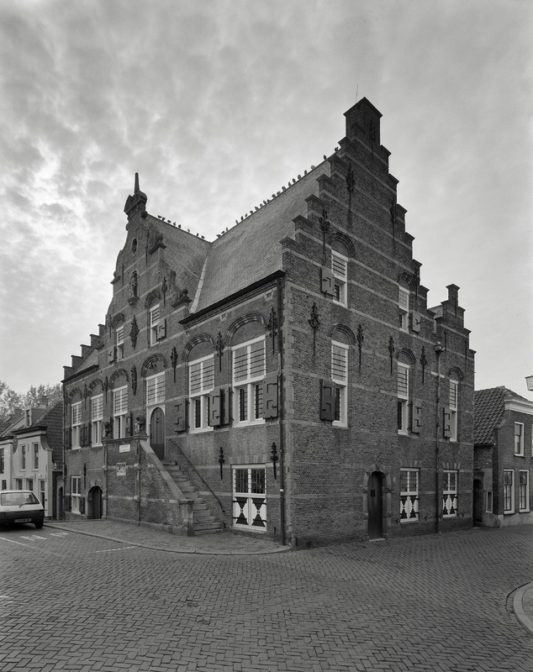To find records, it helps to understand the administrative history of the record creators involved.
A few examples from my own research:
- If you are researching an ancestor involved in a legal dispute, you have to know which court held jurisdiction over such cases, and where they would go for appeals, plus any changes in these jurisdictions or rights.
- If your ancestor was a tenant of an abbey in the sixteenth century, knowing that the abbey was dissolved during the Reformation and that the provincial States took over the management of their estates helps to you understand where to look for the financial accounts that may include your ancestors paying rent.
- Knowing the municipality which your ancestors’ town was a part of will help you determine where to look for their birth, marriage, or death records. Knowing when that municipality split up, was renamed, or merged with another municipality will help to to know where to look next.

Town hall of Ooltgensplaat. Credits: Rijksdienst Cultureel Erfgoed (CC-BY-SA)


Excellent advice as always Yvette.